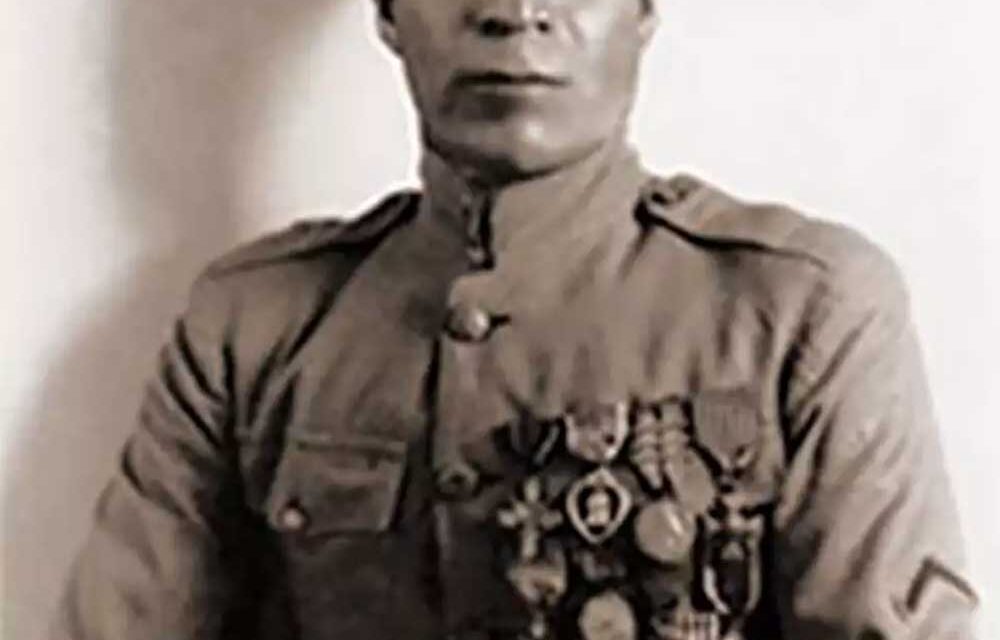By CPT. Tony Mandujano Sr. MA USA Rt.
LTC Lawrence Romo, LULAC National Veterans V.P. (Former National AGIF Commander, President Barack Obama’s director of the U.S. Selective Service Commission, ) started the Press Conference by an opening statement, “A Mexican-American soldier named Marcelino Serna was at the rank of a Private but did not receive the Highest Medal in the US Armed Forces, Medal of Honor.” ” We have brought this matter of attention to the outgoing POTUS Biden while currently calling on Representatives from El Paso, Texas to San Antonio, Texas. We have also communicated this mattter to our Fellow Veteran Advocate members, in other states.”
Pvt. Marcelino Serna’s heroics and lethal effectiveness on the battlefield, where he killed more than two dozen enemy soldiers in a single fight, and brought some to surrender which made him was one of the most decorated U.S. soldiers in World War I. But he never received the Medal of Honor from the USA while other countries (Italy, France, etc.) did award him their Highest. Though denied the Medal of Honor, Serna did receive a Distinguished Service Cross, the second-highest award for wartime heroism. He also was awarded two Croix de Guerre medals from France, the Croce al Merito di Guerra from Italy and several several honors.
PVT. Serna was shot in both legs by sniper fire on Nov. 7, 1918, and was on convalescent leave in a French hospital while the war ended four days later. He quietly faded into obscurity after returning to El Paso, Texas where he moved on with civilian life. Marcelino Serna then married in 1922 and became an American citizen in 1924. He worked as a city truck driver, a civil service employee at Fort Bliss, Texas and as a plumber at the post hospital, William Beaumont Army Medical Center, before retiring in 1961. He and his wife, the former Simona Jimenez, had six children, only two of whom lived to adulthood. As a True Patriot for this Country, Serna showed up up to re-enlist when World War II began but was turned away due to his age. Despite his low-profile, however, the World War I Centennial Commission called Serna the most decorated Texan of the Great War, and a U.S. Customs and Border Protection Port of Entry was named for his Heroic actions during war.






